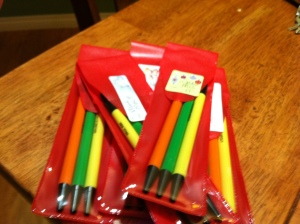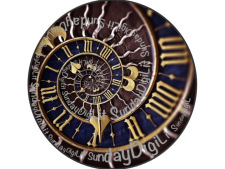
We had Genius Hour yesterday.
During our Genius Hour time I don’t direct the work, the students do. I operate as a consultant and resource. I’ve been a big proponent of this work, because of the agency it builds. That doesn’t mean I don’t question the work and watch, try to guide and counsel on as needed basis. Yesterday was a day I questioned their work.
Our focus this year has been to research or follow your passion or what bothers you, and find a way to help make a difference in the world.
I encourage individual work, but many students gravitate toward group work. The trouble with groups is the possible reduction in personal agency and that strong personalities can dominate the group. Some kids get excluded. You know that kid: the kid who is “annoying,” the kid that doesn’t fit in. This year, it seemed that students were working well together.
Ironically, trouble started in the “kindness project” group. I heard talk that was far from kind. They were saying and doing things that were exactly what they were preaching against. This talk led me to stop the class half way through our time.
I asked students to put their work aside and write, persuade me, prove to me that Genius Hour time was worthwhile. All you could hear was the tapping of pens on the desk.
As an aside, they can write argument when it’s something they have a strong opinion about. Three reasons why with supporting evidence, introductions, conclusions and a fair amount of begging could be found in most letters. All done in ten minutes with no planning, prompts, charts or talk preceding their writing. Here’s a sampling of their big ideas:
It makes us feel like we are in charge; playing but working at the same time
I want to teach myself and share my thinking
It helps me with problems – I learn new things
I want to show others that we are geniuses and help other people
It inspires us to do more
We work hard on these projects, inside and outside the classroom
We are able to study things we want to learn in this world
It helps us learn things we didn’t know and helps us spread ideas to the world
It is a time for us to express our genius and stand up for what we believe in
The responses shined a light on why this is valuable time for students. When I think back on what I have observed I note the troubles and the strengths. Some struggle to find focus and have switched projects. A lot of the work is done outside of class. Some of it was socializing and messy and loud. The trouble in groups happened, but the majority showed great team work and dedication to their work.
Reading through the responses, one piece stood out with a contrary and sobering point of view. “N” liked the time, but she also had the strength to stand up and say the opposite of the group:
I honestly don’t think we need to continue. I don’t know. I’m like, can we just read? I don’t like a loud room and I have things I like to do, but I think that most just want to be with friends.
At the bottom of the page, “N” wrote and then scratched out: “so I think if we do the Genius project….” I wonder she had in mind.
This one student’s voice is true and indicative of something that needs to change. And maybe not just for her, but for others who need more quiet, focused and personally responsive time.
Providing students with Genius Hour time when time is in short supply, might be a dangerous move. It is not safe. It is possible that the majority are just saying what they think I want to hear to continue in this rather unstructured school time. With that said, I know there is thinking, reading and writing inspired by Genius Hour that has continued outside the classroom time. This is the type of work we want our students to engage in. Independent, self propelled learning that is done for their own interests and not because a teacher told them to do it.
Genius Hour might have times that are less than perfect, but it has gotten students to do work they otherwise wouldn’t have done. The fact that my students feel they have “genius and stand up for what [they] believe in” is big. And that is exactly what “N” did when she apologized for not liking the noise and wanting to just read.
We have things to work out with our Genius Hour time, but isn’t that true for all things we do in the classroom. Things need to be worked on to meet the needs of all. Luckily the room is filled with genius, so it’s not all on me.
Thank you Anna, Betsy, Beth, Dana, Stacey and Tara at Two Writing Teachers for providing a space to share these slices of teaching life. A space to work out it out. Sometimes we just need to write. Read more slices here.




 I always question my actions; whether or not it is the best thing, the right thing. While I don’t believe there is one way, I do believe there are things to aspire to, goals to reach for.
I always question my actions; whether or not it is the best thing, the right thing. While I don’t believe there is one way, I do believe there are things to aspire to, goals to reach for.
 Most students split the project up into the pieces they knew well. Then they presented their stories to the class. All were unique. Some told the story as a chronology. Some told pieces of the story as cause and effect, while others saw their part as a problem with needed solutions.
Most students split the project up into the pieces they knew well. Then they presented their stories to the class. All were unique. Some told the story as a chronology. Some told pieces of the story as cause and effect, while others saw their part as a problem with needed solutions.









